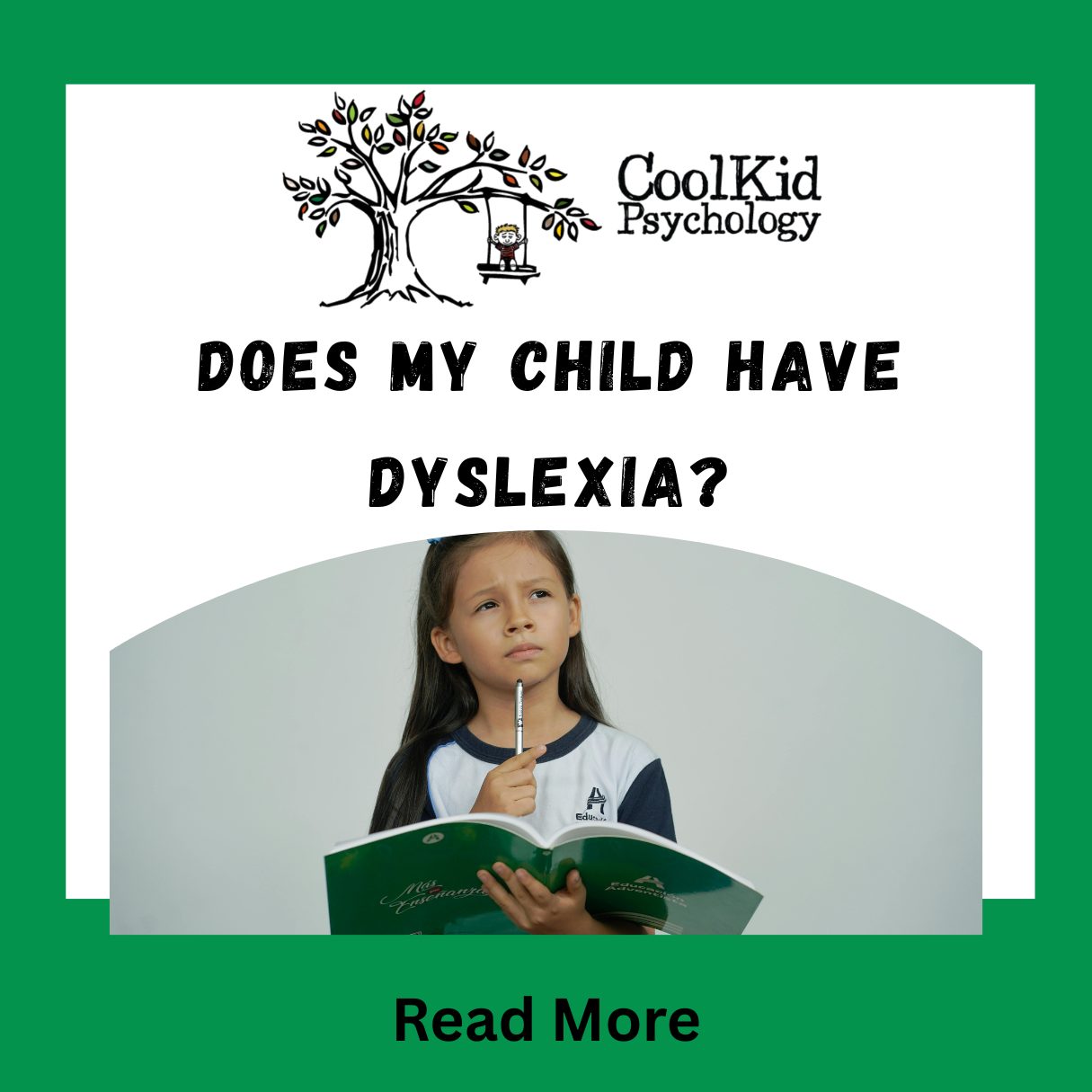
Does my child have Dyslexia?
A Specific Learning Disorder with impairment in reading (often referred to as Dyslexia) means that your child experiences persistent difficulties with aspects of reading, despite intervention. Dyslexia is the most common learning disability, accounting for 80% of all children identified in Australia.
Trouble areas with Dyslexia include difficulties with sounding out written words, recognising common words in text, spelling, reading fluency, understanding what has been read, writing, rhyming, solving worded mathematical problems, and learning a foreign language.
These difficulties are unexpected, are not the result of inadequate teaching instruction, and are not the result of a more general learning difficulty such as an intellectual developmental disability. Dyslexia is not a problem of intelligence, laziness, vision, or reading letters backwards. Dyslexia is typically caused by a deficit in phonological awareness, meaning challenges with the ability to recognise and manipulate the individual sounds (phonemes) in spoken words.
With the right support, your child with Dyslexia can improve their reading. Students with Dyslexia are best supported with, and require access to, Structured Synthetic Phonics Program(s) which teach the link between letters and their sounds and teach common spelling patterns. This is an evidence-based, systematic way of teaching reading and writing with an emphasis on phonemic awareness, and explicit and sequenced instruction. The ‘Understanding Learning Difficulties: A Practical Guide for Parents’ (included below) contains many high quality, evidence-based programs, as well as recommended literacy apps for students across age groups.
Students with Dyslexia may also benefit from educational accommodations including, but not limited to, the following: an Individual Education Plan; provision of extra time on challenging tasks, assessments, exams or equivalent; and use of assistive technology such as speech-to-text software, spell check, audiobooks, and electronic reading pends (c-pen).
Additionally, it is common for reading to be more effortful for students with Dyslexia which can result in cognitive overload and/or fatigue. Therefore, students with Dyslexia may also benefit from frequent brain breaks, as well as reduction of administrative tasks where possible.
For further information and resources on Specific Learning Disorders including Dyslexia:
- ‘Understanding Learning Difficulties: A Practical Guide for Parents’. Downloadable from: https://uldforparents.com/
- Explore videos about Dyslexia such as https://www.understood.org/en/articles/video-dyslexia-and-the-brain
- Online support group for parents – Dyslexia Victoria Support Forum (Australia): https://dyslexiavictoriasupport.com/
- ‘What I need’ eBook written by Tiffany James. Downloadable from: https://www.nessy.com/en-us/dyslexia-explained/free-learning-resources/what-i-need-ebook
